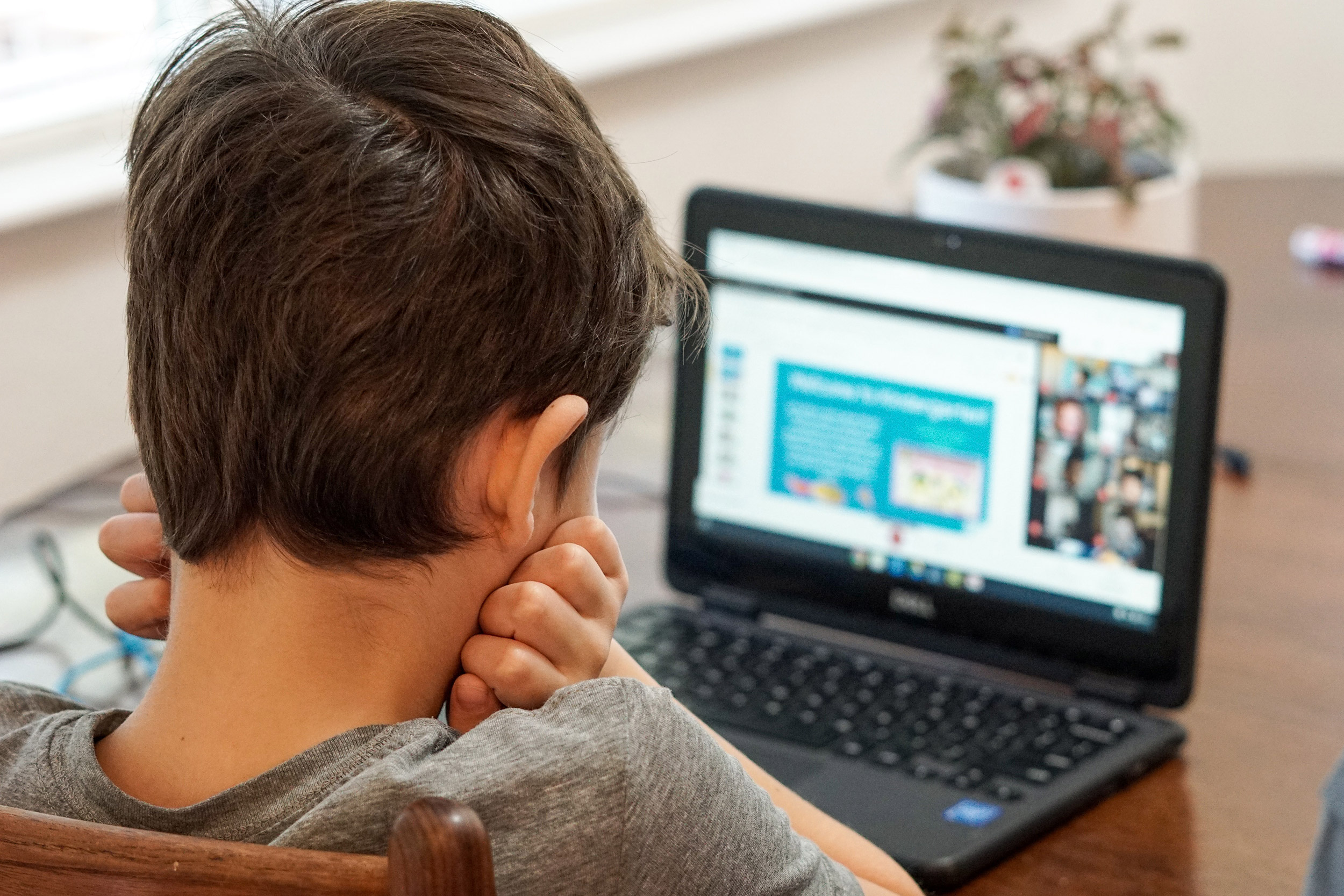
Tom Park/Unsplash
When it comes to online learning, safety first
HUIT, Ed Portal host Zoom event to answer parents’, teachers’ questions
For the past six months, if you could work or learn from home, your home has doubled as your office or school. Teachers had to rethink lesson plans, living rooms became classrooms, and we all became our own satellite IT teams. Virtual learning, which used to be a portion of a college curriculum or an option for those who physically couldn’t make it to a classroom, is now the norm for all grade levels and personal circumstances.
With this shift come questions. Is the internet we have in our homes strong enough to support multiple daylong users? How much time in front of a computer is too much, for children and for adults? How do we stay engaged when we can’t be near one another? Should we worry about our children’s safety on the internet?
To answer some of these questions, the Harvard Ed Portal partnered with Harvard University IT (HUIT) on a free public event, hosted on Zoom on Sept. 23. Attendees used the opportunity to engage with and ask questions of Harvard’s IT security experts, including a leader in the field of media and technology in education, Harvard Graduate School of Education senior lecturer Joe Blatt.
“With Boston Public Schools starting remotely this week, we thought it was important to offer an online security event for educators and families,” said Leah Dodell, Ed Portal program manager, Digital Learning and HarvardX for Allston. “This event was an opportunity for us to bring together experts who could speak to digital safety practices, like making sure students create strong passwords, as well as digital well-being practices, like encouraging students to take breaks and play when learning online. It’s essential for us to keep both types of practices in mind to maintain our security and our sanity in this world of remote learning.”
Topics ranged from the practical, with questions about internet security, to the philosophical, like how best to educate students virtually. Ways to stay safe online, what being in front of a screen all day does to us, and how we learn today were central to the conversation. The diversity of topics showcased how complex this new reality is, for teachers, for students, and for parents.
Blatt started by asking who in the audience had a child at home attending school remotely. Nearly half the attendees indicated they did, either by raising their hands or using Zoom’s reaction capabilities.
“If anyone told me I had to be on Zoom for [seven-plus hours], I’d probably quit,” Blatt said, echoing a participant concern about how long kids are asked to spend online. He said trying to replicate a typical school day on a computer is not the best way to teach online.
“[Most often] accounts are compromised not because of some technical hack, but [because] the person who owns the account is manipulated into divulging [account] secrets.”
Louw Smith, HUIT
Blatt said lessons must be designed and executed in a variety of ways to be effective. A mix of mental and physical activity is important, he said, and “Play is such an important learning medium for kids.”
Many of the participants said they were worried about their children burning out after days in front of a computer. Blatt agreed, adding that more time does not necessarily indicate more learning is happening. Burnout from looking at a screen is real, for children and adults, and he recommended breaks.
“It’s not a good idea to push yourself to the limit [using digital platforms],” Blatt said.
On the technical side, most questions focused on internet safety, both how to keep children safe online and the safety of applications, including the platform on which the event was hosted, Zoom.
“[Most often] accounts are compromised not because of some technical hack, but [because] the person who owns the account is manipulated into divulging [account] secrets,” said Louw Smith, an HUIT security operations staffer. Smith stressed that online security is the same for children and adults: strong passwords and knowing the risks of sharing information are key.
About halfway through the event, Blatt asked if any of the participating teachers wanted to contribute to the discussion. He said that learning, especially now, is more than just curricula; interactions between children and parents are essential to determining not only if students are getting the right types of screen time, but that they understand and can process what they’re taught.
Rosalyn Lake, a high school Spanish teacher who works in Washington, D.C., said she believes the first step to educating virtually is understanding.
“I’m building my relationship with my students — I’m focused on social and emotional [education in addition to a curriculum],” said Lake. “How can we push a curriculum when we don’t know our families, and don’t know our students?”
Blatt said what we don’t know about online teaching and learning is as important as what we do know.
“It’s impossible to say much and claim research support [in this area] — there has not been enough time to say that there has been reliable research on all these good questions people are asking.”




